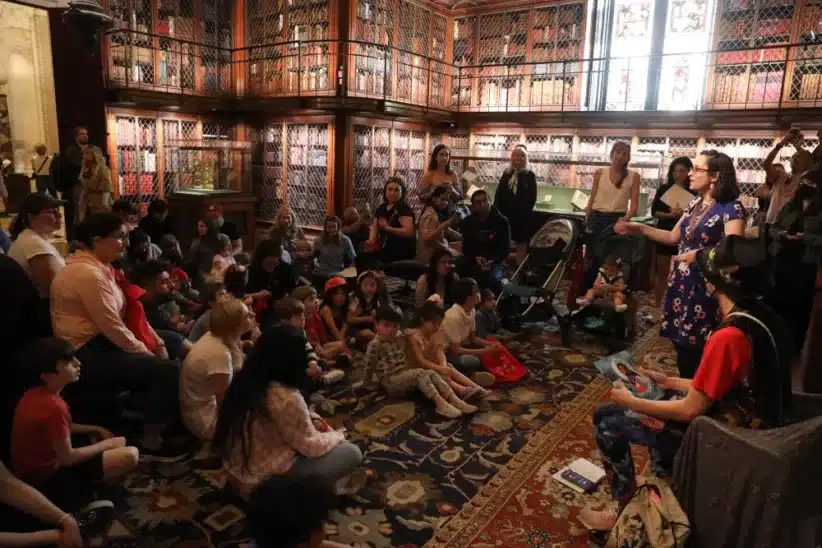In his book, “ScreamFree Parenting: The Revolutionary Approach To Raising Your Kids By Keeping Your Cool,” marriage and family therapist Hal Edward Runkel encourages parents to stop trying to control their kids and start controlling their own emotional responses instead. We recently spoke with Runkel (who also authored the recently released title “ScreamFree Marriage”) about his book, the “scream free” approach, and how parents can “calm themselves down and grow themselves up” in order to connect with their kids.
What is the “scream free parenting” philosophy?
It’s a shift of focus. Instead of trying to control your children, control yourself. We’ve all tried to control our children and none of us have been successful. The goal of this model is to control ourselves so that we can have a position of influence where our children can respect that mom and dad are adults and that they don’t lose their cool. ScreamFree is about creating a pause between children pushing our buttons and our response. In that pause, we can begin to think more clearly: “I am going to be an adult no matter how childishly my children behave.”
You claim that one of the best things we as parents can do for our children is to focus more on ourselves. Can you explain?
If we don’t take care of ourselves, we end up needing our kids to take care of us by behaving and by making us look good. Then they are the leaders of the family, not us. What kids need most are parents that do not need them—I know this is a jarring statement, but it’s true. Focusing on yourself is one of the best things you can do because you are communicating to your kids that you don’t need them to take care of you.
In your book, you talk about how parents have to be aware of their own “emotional reactivity” in order to control their responses to their children’s behavior. What exactly is emotional reactivity, and how should parents deal with it?
“Emotional reactivity” is the term we use for screaming, being passive-aggressive, shutting down, or becoming resentful [in response to other people’s behavior]. The central enemy you face as a parent is not your kids, it’s not TV, it’s not drugs. Your enemy is your own emotional reactivity. When we get reactive, we don’t just make things worse, we actually create the outcome we were hoping to avoid in the first place. Staying calm grants you a sense of authority. Parents may not always have the perfect thing to say or the perfect consequence, but when we stay calm the message to our children is, “No matter what you do, I am still in charge of me; I’m not going to do you a disservice by giving you my remote control and then complaining about the fact that you push my buttons.”
What if I have a difficult child who whines and complains, or is aggressive? What if my child does something really naughty, like hits their sibling? How do I stay calm, no matter what?
If you want to use it as an opportunity to lead them, don’t get louder. Get calmer. Get quieter. Go right up to them, be as still as you can, and whisper, “You are not going to behave this way. You are going into timeout,” or whatever you choose to be the consequence. The softer and calmer you get, the more serious you sound.
Parents have told us that conflicts often arise when they feel rushed, which in this city, is much of the time! How can we implement non-reactive parenting when we are feeling so stressed?
If you’re waiting until the heat of the moment to discover this ScreamFree muscle, that’s like not exercising and then trying to lift 200 pounds. This has to be something that you’re beginning to ingest on an ongoing basis, and it means that you start thinking strategically: what do I need to do to give my kids the best chance of succeeding in the morning? Perhaps it’s getting my kids up 15 minutes earlier. Mornings and bedtimes are not times to start ranting and raving; those are times that call us to a higher standard because our kids are looking to us in those stressful moments for leadership.
Parents often describe scenarios like, “My child refuses to get dressed, get in the stroller, leave for school, eat dinner, etc.” How can parents handle these situations in a calm way?
They are refusing because they are testing. Ask yourself, what are the natural and logical consequences for refusing? Instead of saying things like, “Don’t throw the toy” over and over, say, “If you throw the toy, the toy goes away for ten minutes.” Don’t be angry about it.
Say they are refusing to get in the stroller and I have somewhere to be. At some point shouldn’t I just pick them up and put them in the stroller?
Absolutely! Say, “You don’t have the choice as to whether you go to school on time. You do have the choice as to how you go to school. You can go the easy way or the hard way. The easy way is you get dressed, you get in the stroller and we start walking. The hard way is I pick you up and put you in.” Don’t be angry about it, just respect that they are choosing the hard way. You always want to give your kids some choice in the matter because that’s the skill you want your kids to develop most: decision-making.
But shouldn’t we insist that our children do what we, as parents, say?
So many parents think, “I should say it and they should do it.” I always ask them, until when? How long do you want to be responsible for telling them what to do every step of the way? When do you want them to begin to think for themselves? It’s our job to let them know the choices they don’t have—kids don’t have the choice between going to school or playing in the street—but also the choices they do have. One of the best things we can do is get to a place where there is nothing our kids can do to embarrass us. When we allow them to embarrass us we’re taking too much responsibility for them. We are not responsible for our kids; we’re responsible to them.
If there’s one piece of advice you hope parents take away from reading your book, what would it be?
That your kids are going to act like kids. The real question is, how old are you going to act? Someone once told me that this scream free model is like moving away from the impossible—controlling your kids—and moving to the really, really difficult—controlling yourself.
Laura Deutsch and Heather Ouida run the social and educational parent networks Babybites and Kiddybites. For more info, visit babybites.com.
The Mommybites Summit: The Ultimate Moms Night Out
Babybites invites city moms (and dads and even grandparents!) to their annual MommyBites Summit: The Ultimate Moms Night Out, happening May 19 at the Columbia Faculty House. It’s an evening to meet other parents; enjoy wine and snacks; check out a variety of cool kids’ products and services; and hear from notable parenting experts, including keynote speaker and “ScreamFree Parenting” author Hal Runkel, Cool Mom Picks publisher and CEO Kristen Chase, and Emmy-winning producers Mary Ann Zoellner and Alicia Ybarbo. All attendees will be entered to win incredible raffle prizes and will leave with a gift bag. To learn more, visit babybites.com.





















